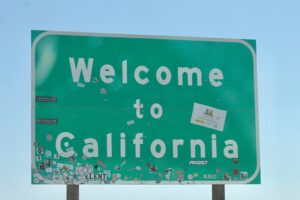If you want to enter the sweepstakes business, familiarize yourself with sweepstakes law and consult legal counsel to ensure compliance.
HBO’s new docuseries, McMillion$, is the fascinating story of how the sponsors of the McDonald’s Monopoly sweepstakes were scammed out of $24 million dollars in the 1990s. Despite the scam, the McDonald’s Monopoly sweepstakes was an otherwise successful partnership between two iconic brands (the fast-food chain and the board game), a promotion that was often used by McDonald’s over the years to increase foot traffic when sales were low. Any business owner who has watched episode 1 of the series may be prompted to introduce a sweepstakes to generate excitement among her/his customers. Before doing so, however, it is wise to speak with a promotions attorney who is familiar with the nuances of sweepstakes law.
What are the basics of sweepstakes law?
Defining a Sweepstakes
A lottery exists when people pay for the chance to win a prize. Private entities (unlike the state) cannot offer lotteries. If the requirement to pay to enter is removed, the lottery becomes a legal sweepstakes. If chance is removed, the lottery becomes a legal contest. And if the opportunity to win a prize is removed, well, then nobody will enter. Sweepstakes promotions are heavily regulated in order to prevent various types of consumer fraud. If applicable state sweepstakes laws are not followed closely, sweepstakes operators face the prospect of fines, reputational harm and, potentially, criminal sanctions.
Sweepstakes Law Requirements
Sweepstakes sponsors may offer entry into their promotions through monetary payment or the purchase of a product or service, provided that they also offer a free, alternative method of entry (often referred to as an “AMOE”). Using the McDonald’s Monopoly sweepstakes as an example, customers who bought fries or soda received either tokens to participate in the Monopoly sweepstakes or automatic prizes. In addition, McDonald’s provided an AMOE by allowing participants to mail in for free tokens and the ability to find free tokens in print advertising.
All sweepstakes promotions are governed by their applicable official contest rules. The official rules are a contract between the sweepstakes operator and its entrants. It is imperative for the official rules to be finalized prior to when a sweepstakes begins because they cannot be changed during the duration of the sweepstakes promotion. Sweepstakes rules must include all eligibility requirements and any exclusions to entry. Typically, an entrant must be 18 years of age or older, must reside in a specific geographic location and may not work for the sweepstakes operator or be a member of the same household as an employee of the operator. Additional official rules provisions include: 1) start and end dates; 2) methods of entry; 3) limitations on number of entries; 4) odds of winning; 5) descriptions and value of prizes; and 6) how winners are selected.
Once a winner is selected, the sweepstakes sponsor must notify the winning entrant(s). Winners are often required to complete an affidavit of eligibility, any applicable tax forms, and, as required by some sponsors, a publicity release. Prize winners should not be charged any shipping or handling, or other fees, to claim their prizes. In addition, certain state agencies require that an official winners’ list be filed within a statutorily defined period of time after prizes have been awarded.
The states of Florida, New York, and Rhode Island require registration and/or bonding of sweepstakes contests. Florida and New York require bonding and registration if the aggregate value of the prizes in any given contest exceeds $5,000. Rhode Island has a prize threshold of $500, but only requires registration for brick-and-mortar businesses that run promotions in connection with their retail outlets.
The requirements to comply with sweepstakes law are somewhat confusing and often risky. As such, seeking legal guidance from experienced sweepstakes attorneys can be the difference between a successful promotional campaign and an illegal lottery. If you are interested in learning more about this topic or require assistance in connection with your sweepstakes and promotional campaigns, please email us at info@kleinmoynihan.com, or call us at (212) 246-0900.
The material contained herein is provided for informational purposes only and is not legal advice, nor is it a substitute for obtaining legal advice from an attorney. Each situation is unique, and you should not act or rely on any information contained herein without seeking the advice of an experienced attorney.
Attorney Advertising
Similar Blog Posts
Mobile App Sweepstakes and the Law




